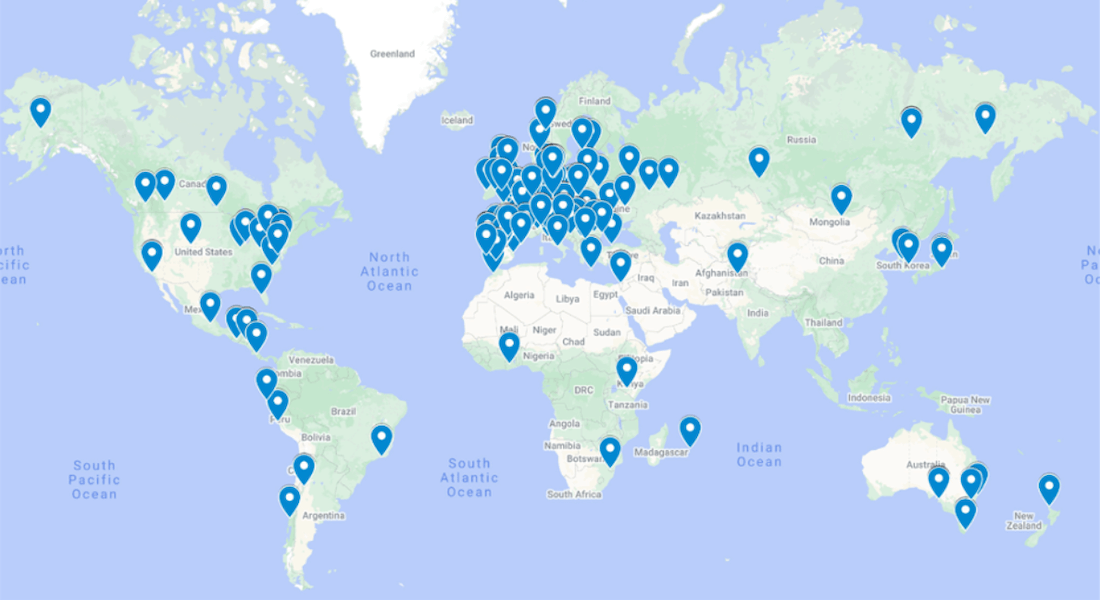A global collaboration to study animals and their microbiota
The Earth Hologenome Initiative is a global collaboration with more than 200 collaborators from around the world and open for more to join. The ambitious aim is to generate and analyse hologenomic data from wild animals and all of their associated microorganisms using standardised methodologies underpinned by open and inclusive research principles.

Pioneering research on vertebrates and their microbes
Initially focused on vertebrates, the initiative aims to reexamine ecological and evolutionary questions by studying host-microbiota interactions from a systemic perspective by involving collaborators from all over the world.
“Current molecular technologies enable us to study animal-microbiota interactions with unprecedented resolution. However, addressing fundamental ecological and evolutionary questions requires characterising hundreds of taxa, a task achievable only through global collaboration among researchers and the standardisation of methodologies.” Associate Professor Antton Alberdi explains.
Complexity is the challenge
To date, hologenomic information remains scarce, dominated by data derived from humans, model organisms, and farm/domestic animals, with limited representation of wild animals. There has been an increase in both the number of animal reference genomes and catalogues of functionally annotated prokaryotic genomes during the last decade. However, the complexity, differences over space and time, and scale-dependent nature of eco-evolutionary processes require a large and coordinated effort to systematically generate comparable host-microbiota data from a taxonomically, functionally, environmentally, and geographically representative number of animal species worldwide.
A solution for scientific advancement
The Earth Hologenome Initiative (EHI) was established to promote, facilitate, coordinate, and standardise hologenomic research on wild organisms. The EHI aims to achieve five strategic goals that will benefit the scientific community in terms of scientific outputs, methodological development, infrastructure availability, and networking, all grounded in solid ethical principles.
Progress and future prospects
The EHI boldly steps into the realm of a largely unexplored scientific territory, with significant work ahead to achieve a comprehensive overview of host-microbiota systems or holobionts across taxa and biomes. Furthermore, the initiative's transparent procedures and collaborative ethos are likely to attract a wave of innovative researchers equipped with fresh perspectives and advanced analytical skills. This collective drive is poised to propel pioneering hologenomic research to deepen our insights into the intricate interconnectedness of Earth's life forms, while tackling challenges at the frontiers of the global research, biodiversity and sustainability agendas.
The paper can be found in Trends in Ecology and Evolution here.
Contact:
Associate Professor Antton Alberdi
